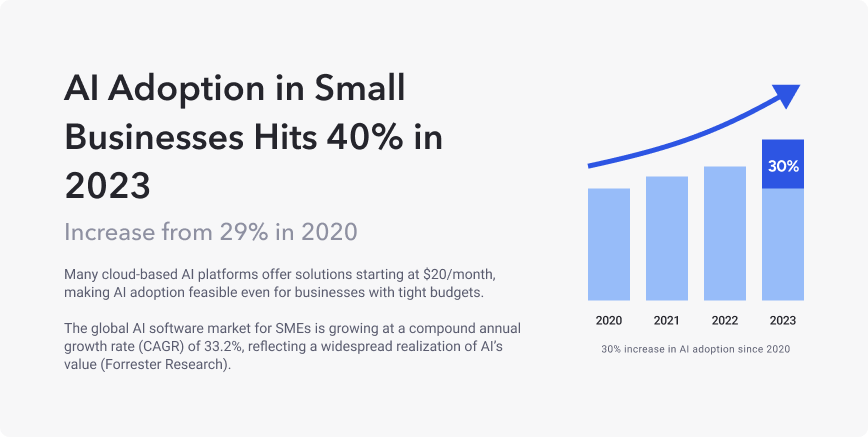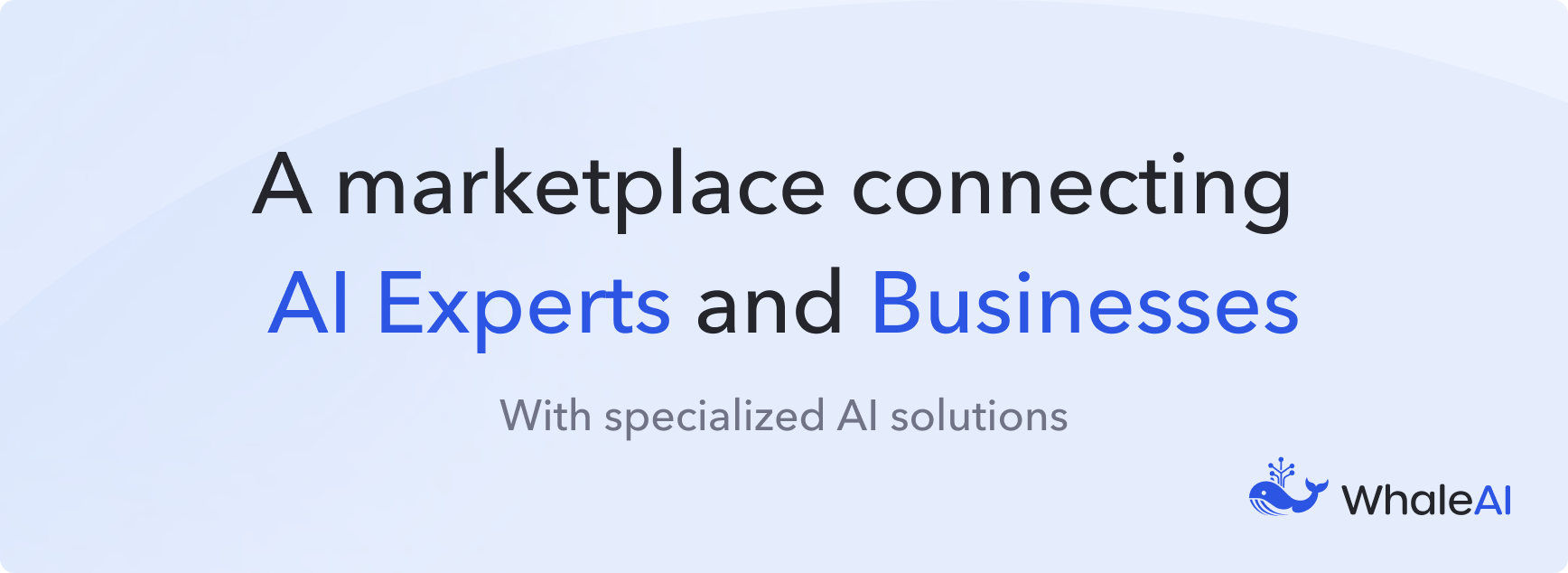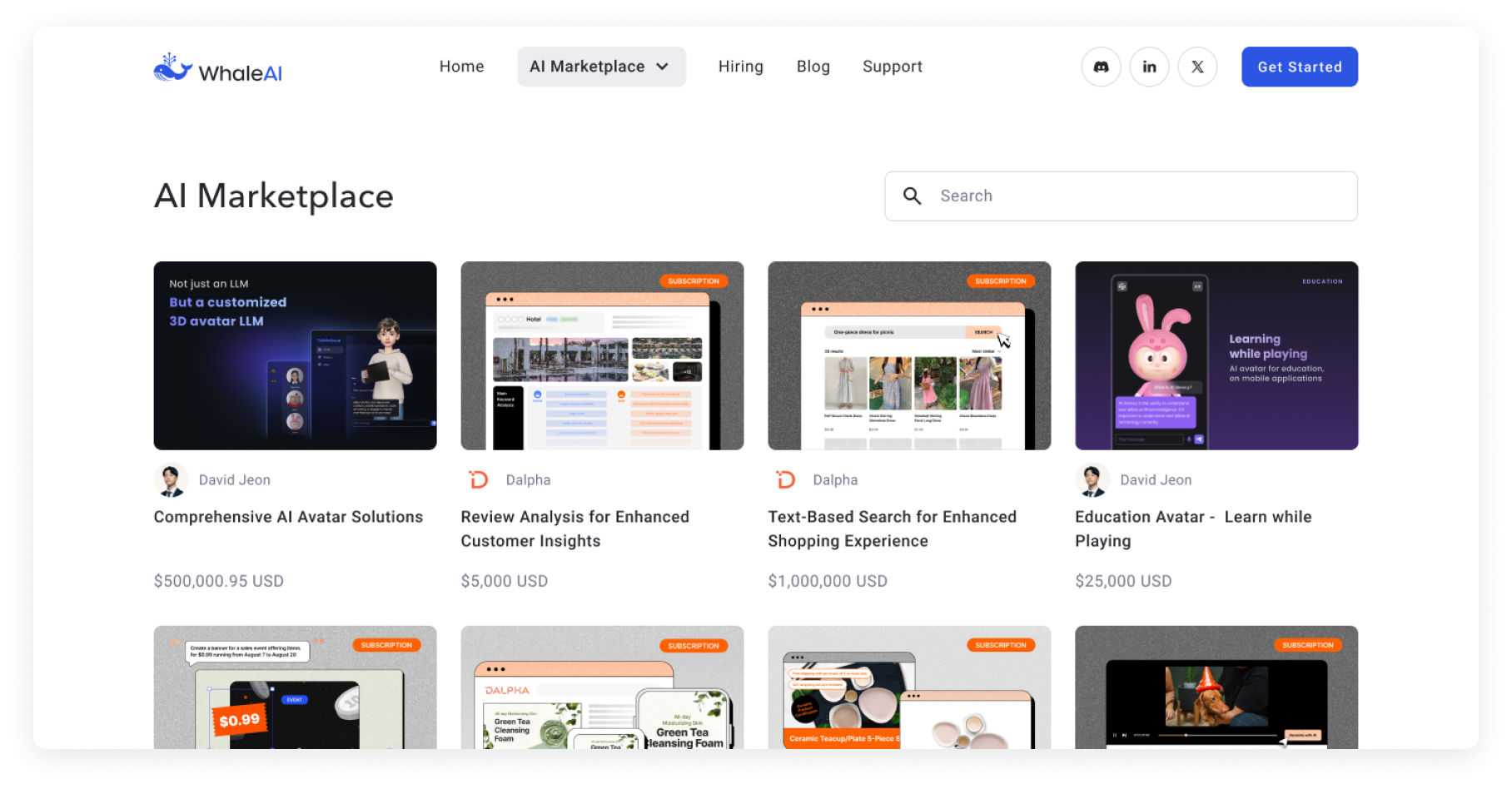

Artificial Intelligence (AI) is widely regarded as the next paradigm in technology and economics. Individuals are already leveraging tools like ChatGPT, Claude, Gemini, and Perplexity to dramatically enhance their productivity. A wealth of online articles illustrates how AI can amplify personal efficiency, offering numerous effective methods, many of which have proven highly impactful.
But can organizations adopt AI in the same straightforward manner as individuals integrate tools like ChatGPT or Claude into their workflows? What about critical considerations such as the ROI of AI implementation, error rates post-deployment, internal controls, security risks, and collaboration challenges? And how can companies learn from existing success stories and failures?
Unfortunately, compared to the abundance of information available for individual AI use cases, guidance on how businesses should adopt AI—particularly regarding strategies, costs, and outcomes—remains significantly underrepresented. This lack of accessible knowledge continues to hinder companies from fully realizing AI’s potential.
Many small and medium-sized enterprises (SMEs), in particular, perceive AI as prohibitively expensive, overly complex, or a tool reserved exclusively for tech giants. Others harbor unrealistic expectations, anticipating instant results only to face unexpected challenges along the way.
This blog takes a deep dive into three common myths about AI, debunking them with facts, real-world case studies, and actionable insights. Whether you’re a small business owner hesitant about AI adoption or an enthusiast looking to separate fact from fiction, this article will guide you toward a clearer understanding of how AI can work for you.
Myth 1: AI is Only for Big Corporations

AI is often perceived as a high-cost, high-complexity tool reserved for tech giants like Google, Amazon, or Microsoft. Many small and medium-sized enterprises (SMEs) assume they lack the resources, data, or expertise needed to implement AI effectively. This misconception has held back countless businesses from exploring the transformative potential of AI.
However, AI has become increasingly accessible, thanks to cloud computing, open-source frameworks, and affordable SaaS platforms. Even small businesses with limited budgets can leverage AI for tasks such as marketing, inventory management, customer service, and more. Tools that once required dedicated data science teams are now user-friendly, scalable, and customizable for non-technical users, making them ideal for SMEs.

A significant factor contributing to this shift is the evolution of cloud-based AI tools. These platforms eliminate the need for costly on-premise infrastructure, providing businesses with on-demand AI solutions at a fraction of the cost. Many of these tools are subscription-based, offering flexibility and affordability. Furthermore, open-source AI frameworks have made it possible for businesses to experiment with AI models without incurring significant expenses. In short, the conditions for SMEs to adopt AI affordably are already in place.
However, despite the availability of renowned cloud-based AI tools, open-source frameworks, and popular SaaS platforms like Notion, Zoom, and SAP with AI functionalities, as mentioned earlier, there is still a lack of detailed information regarding the costs, benefits, and challenges SMEs face when adopting AI. Why is this the case?
The reasons are straightforward and can be attributed to two main factors. First, AI technology is still in its early stages, and companies often withhold critical insights—such as costs, ROI, and lessons learned during implementation—to maintain a competitive edge. By keeping this information private, businesses ensure their strategies remain advantageous. Second, there are still relatively few successful examples of AI solutions effectively addressing the specific challenges SMEs face. Failures often result from selecting unsuitable solutions, encountering difficulties during the implementation process, or experiencing unexpected side effects post-adoption.
WhaleAI is dedicated to addressing this critical gap in information. Through this blog, we aim to showcase real-world success stories of SMEs adopting AI effectively. Each case study will highlight the business’s initial challenges, the problems they sought to address with AI, the implementation process, and the results achieved after adoption. These stories will provide actionable insights and guidance for other SMEs considering AI adoption.
Case Study A: Marketing Automation for an SME in Consumer Goods E-Commerce

Located in South Korea, Company A operates an online retail business specializing in sourcing and selling consumer goods such as hairdryers, travel luggage, beverage tumblers, massage pillows, and humidifiers, offering a total of 50 products. The company relies heavily on online advertising and Instagram influencer marketing, collaborating with around 200 influencers and running daily campaigns on platforms like Facebook and Instagram.
Challenges Faced
- Ad Creative Production: The company needed to produce 20–50 product ad creatives daily and update them weekly. Managing the quality of hundreds of images while working with two in-house designers and three freelance designers proved challenging, and the associated labor costs were burdensome.
- Inconsistent Influencer Content: The quality of photos and captions uploaded by influencers varied significantly, leading to inconsistent campaign performance. Additionally, the original product concept and vision often got lost in translation.
Solution
WhaleAI matched Company A with a South Korea-based partner specializing in custom AI solutions. The solutions included:
- An image customization AI tool that could generate numerous variations of product visuals while maintaining consistent brand identity and tone.
- A copywriting and storyboard creation AI solution to craft influencer-specific product captions and guide influencers in creating consistent, on-brand content.
WhaleAI assisted in planning and monitoring the implementation, as well as reviewing post-implementation outcomes.
Results
- Streamlined Ad Creative Production: Hundreds of online ad creatives now maintained a unified brand identity while offering tailored variations for each product. This enabled Company A to cut labor costs by reducing its reliance on three freelance designers, saving approximately $5,000 per month. The cost of using the AI solution was $1,500 per month, resulting in a net cost reduction.
- Enhanced Influencer Campaign Performance: By providing influencers with tailored captions and visual storyboards that aligned with their posting styles, lower-performing influencers saw a performance boost. Revenue contributions from these influencers increased by 30–50%, directly improving the ROI of the influencer marketing campaigns. The cost of using the AI solution was $1,000 per month.
Case Study B: Inventory Optimization for a Fashion Retail SME

Company B, a Japan-based fashion retailer that designs, manufactures, and distributes men’s ties, socks, and accessories, faced the following challenges:
Challenges Faced
- Forecasting Issues: Unpredictable weather patterns disrupted their traditional seasonal inventory forecasting system, increasing the financial burden.
- Weak Research Capabilities: The company struggled with conducting effective market research for new product development, a long-standing challenge.
Solution
WhaleAI introduced two AI solution providers to address these challenges:
- Provider C: A custom AI solution for inventory management, analyzing sales data, seasonal trends, and customer preferences to optimize stock levels.
- Provider D: A custom AI tool for tracking global fashion trends among male Instagram influencers, transforming the data into actionable research insights.
Results
- Reduced Overstock: Overstock levels decreased by 30%, reducing storage costs.
- Improved Stock Availability: Stockout situations dropped by 20%, ensuring the consistent availability of popular products.
- Increased Profit Margins: Optimized inventory management led to an 8% increase in profit margins.
- Accelerated New Product Development: The time required for market research and decision-making for new product launches was cut by 50%. This enabled the company to focus on fewer, more promising product categories for the next season, reducing investment costs and improving ROI.
Breaking the Big Corporation Myth
The belief that AI is reserved for big corporations is outdated. The tools, expertise, and infrastructure required for AI adoption are no longer out of reach for SMEs. Businesses can leverage platforms like WhaleAI to explore solutions tailored to their size and requirements. By focusing on practical, high-impact areas—such as inventory management, marketing personalization, and demand forecasting—SMEs can see measurable improvements quickly.
Take the case studies, for example. Their success wasn’t a result of massive AI overhauls but rather a targeted, practical approach to solving a specific problem. This reflects WhaleAI’s philosophy: start small, solve real problems, and scale as you grow. AI is not just for the big players. It’s for businesses like yours, ready to innovate and adapt to modern challenges. With solutions that are affordable, impactful, and easy to implement, WhaleAI ensures that the transformative power of AI is within your reach.
Myth 2: AI Implementation is Too Expensive and Complex

The perception that AI adoption requires massive budgets, complex infrastructure, and a team of data scientists has long prevented small and medium-sized enterprises (SMEs) from exploring its potential. While this view may have been accurate a decade ago, advancements in cloud computing and off-the-shelf AI tools have now made AI accessible and cost-effective, even for businesses with limited resources. With the availability of open-source solutions, custom AI platforms, and tools like ChatGPT leveraging LLM technology, successful AI implementation can now be achieved within just one to two months.
Most AI implementations today do not require significant upfront investments. However, the challenge lies in the lack of clear information on the initial costs, expected outcomes, and ROI—key details that businesses need for informed decision-making. WhaleAI addresses this gap by listening to each SME’s unique challenges and immediately providing tailored insights on costs and expected benefits. WhaleAI also supports businesses by assisting with implementation planning, monitoring the adoption process, and reviewing post-implementation outcomes. This comprehensive approach allows businesses to start small, address specific problems, and gradually scale their AI adoption as their confidence and understanding grow.
Case Study: Successful AI Adoption by a Regional Media Company

A regional online media company based in Singapore faced challenges in managing churn rates among its paid subscribers. Due to limited resources, the company hesitated to adopt AI. However, after evaluating a custom AI content recommendation engine introduced by WhaleAI, they decided to proceed. This AI tool analyzed user browsing and engagement histories to deliver personalized content recommendations.
Implementation
WhaleAI collaborated with the custom AI provider to preprocess the company’s datasets, which included:
- Existing user interaction records.
- Extensive archives of existing content.
- Data on the direction of future content creation.
The AI system was then deployed to process this data and deliver tailored content suggestions to individual users.
Results
- Improved Subscriber Retention: The severe churn issue—where 11% of subscribed users were leaving—was reduced to just 5%.
- Cost: The solution cost $1,000 USD per month.
The key to their success was the simplicity and affordability of the solution. WhaleAI provided both the technology and consulting support, guiding the company through the process of integrating AI into their operations with minimal disruption.
Addressing the Complexity Myth
One major barrier to AI adoption is the fear of complexity. Many businesses believe they lack the technical expertise needed to implement AI successfully. However, platforms like WhaleAI address this uncertainty by offering end-to-end support, from initial assessment to deployment and optimization. WhaleAI’s consultants work closely with businesses to identify pain points, select the right tools, and ensure that implementation aligns with their goals.
WhaleAI’s Approach Includes:
- Conducting a tailored business assessment to determine where AI can have the most significant impact.
- Providing ready-to-use AI tools that require minimal customization or technical knowledge.
- Offering continuous support to ensure smooth operation and optimization as the business grows.

Breaking Down Costs
The myth that AI is prohibitively expensive often stems from outdated perceptions. Today, 63% of businesses using AI started with projects costing less than $10,000 (Deloitte). Furthermore, cloud-based AI solutions reduce infrastructure costs by 30%-50% compared to on-premise systems, making AI adoption not only feasible but also cost-effective. WhaleAI further reduces barriers by offering affordable subscription models and transparent pricing. SMEs can experiment with AI without fear of hidden costs or long-term commitments.
AI implementation doesn’t have to be a daunting or expensive process. Small businesses like the regional online media company have shown that starting with a single, targeted application can yield immediate and tangible benefits. By working with platforms like WhaleAI, SMEs can access affordable solutions and expert guidance, enabling them to overcome fears of complexity and reap the rewards of AI innovation.
The days of AI being a luxury for large corporations are over. With the right tools and support, any business can embrace AI to solve problems, improve efficiency, and drive growth. WhaleAI is here to make that journey simpler, more affordable, and ultimately successful.
Myth 3: AI Guarantees Instant Success
The idea that AI can instantly solve all business challenges is one of the most pervasive misconceptions about this transformative technology. While AI holds immense potential to improve efficiency, reduce costs, and drive growth, expecting immediate results often leads to frustration and missed opportunities. Success with AI requires thoughtful implementation, realistic expectations, and a commitment to continuous improvement. However, as mentioned earlier, most SMEs lack the knowledge of specific methodologies for thoughtful implementation or an understanding of realistic expectations, making even the most basic efforts toward AI adoption unattainable.
The Reality of AI Success
For AI systems to deliver meaningful results, it is crucial to first determine whether the business challenges can actually be solved through AI. This requires a clear assessment of which AI tools to deploy, how to customize them, and an accurate understanding of the costs and expected outcomes of implementation. Many companies that expect instant success with AI often end up facing disappointing results. This is not because AI itself is ineffective, but rather due to poor selection of AI solutions, flawed customization plans, and a lack of knowledge about costs and adoption strategies.
Case Study: Overcoming Challenges in Implementing an AI Recommendation System for an E-Commerce Company

An online e-commerce company sought to increase customer engagement and boost sales by implementing an AI-driven product recommendation engine. The leadership team anticipated immediate results, believing the AI would significantly enhance revenue right away. However, unexpected issues arose during the initial deployment phase. The product catalog consisted of incomplete and inconsistent data, leading the AI to generate irrelevant recommendations. Customers expressed dissatisfaction with their shopping experience, and conversion rates stagnated despite the new system. Additionally, internal resistance emerged as team members struggled to interpret and act on the AI outputs.
Recognizing the need for external expertise, the company partnered with WhaleAI to address these challenges. WhaleAI began by conducting a thorough diagnostic assessment to identify the root causes of the system’s shortcomings. WhaleAI discovered that the existing recommendation system had significant issues with image and category matching, which were critical components of the company’s product recommendations. This insight was shared and confirmed with the client, fostering alignment on the issues at hand.
WhaleAI matched the company with a custom AI solution provider specializing in recommendation engines with strong capabilities in image and category analysis. Additionally, WhaleAI supported the client in refining product images and metadata to prepare accurate and comprehensive data for the AI system. The recommendation engine was then fine-tuned to integrate user browsing behavior with image and category-based product information, offering a more personalized shopping experience. WhaleAI also provided continuous support, monitoring performance, and helping the company iteratively improve the system.
Results After Three Months of Refinement:
- Increased Sales: Click-through rates for recommended products rose by 43% due to positive customer responses to personalized suggestions.
- Improved Customer Retention: Sales from recommended products increased by 17%.
- Rapid ROI Achievement: What initially seemed like a failed investment is now on track to achieve ROI within five months.
The cost of this custom AI recommendation solution was $1,500 USD per month.
This case highlights the importance of accurate diagnostics, patience, preparation, and collaboration in AI adoption. While the company faced significant challenges at the outset, its commitment to systematically resolving issues led to sustainable improvements.
Managing Expectations for Long-Term Success
AI is not a silver bullet but a strategic tool that provides value when implemented thoughtfully. The foundation of this thoughtful implementation is an accurate diagnostic process. This process enables the selection of the right AI solution and decision-making based on costs and expected benefits. Furthermore, once the implementation process begins, businesses must recognize that AI success involves data refinement, alignment between systems and goals, and fostering a culture of adaptation and learning. Setbacks in the early stages are not failures but opportunities to enhance diagnostic capabilities, refine implementation processes, and improve outcomes. By adopting a long-term perspective, businesses can overcome the initial challenges of AI adoption and unlock its transformative potential. The key is understanding that results take time and that success requires a combination of technical precision, strategic alignment, and sustained effort.
The misconception of instant AI success often leads businesses to disappointment. However, with proper diagnostics and a focus on incremental improvements, AI can become a cornerstone for innovation and growth. The journey of the e-commerce company illustrates the importance of patience and expertise in achieving meaningful outcomes.
Viewing AI as a Long-Term Investment
Many SMEs perceive AI as a novel and intimidating technology, viewing its adoption as a blind and uncertain journey. However, just as in traditional business practices, the key lies in accurately identifying problems, making decisions based on cost-effectiveness, and managing the adoption process with structured project management. The proven methodologies that guide legal and tax functions as essential long-term investments can and should also be applied to AI. Viewing AI as a long-term strategic investment is crucial for sustained success.
AI is no longer a technology of the future; it is an essential tool for businesses aiming to maintain competitiveness in an increasingly data-driven world. Overcoming misconceptions about its costs, complexity, and outcomes is the key to success. As demonstrated in the earlier case studies, SMEs can adopt AI strategically, starting small, addressing challenges, and expanding incrementally.
Conclusion

The journey to AI success is not without obstacles. However, the rewards—enhanced efficiency, improved customer experiences, and long-term growth—make the effort worthwhile. By setting realistic expectations, implementing carefully, and leveraging expert support, businesses can harness the true power of AI to transform operations and achieve sustainable innovation.
Are you ready to fully leverage AI’s potential for your business? Now is the time to take the first step.
